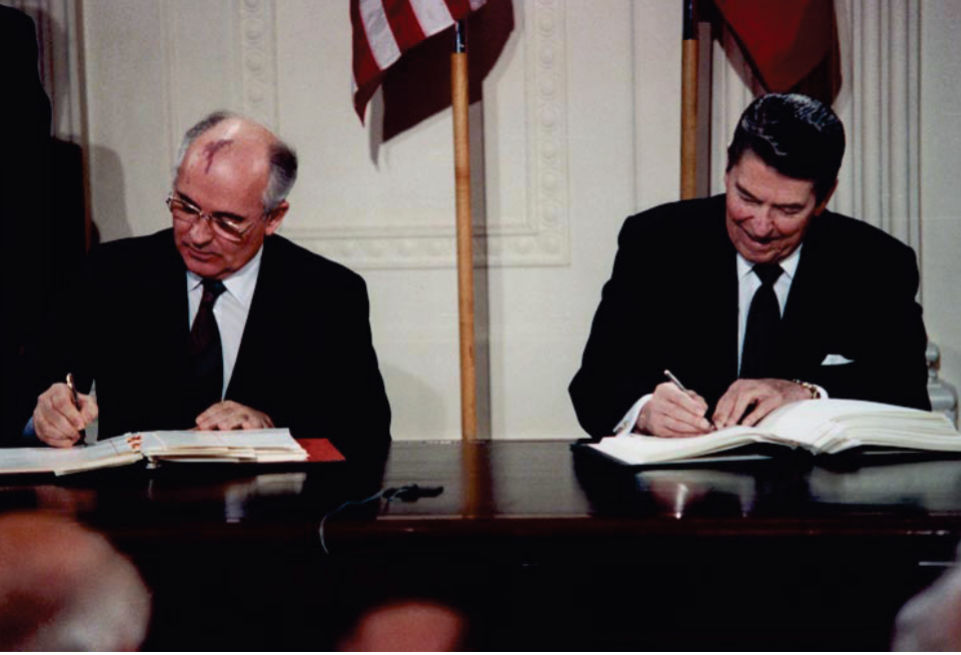Trump shook the foreign policy and defense once again last week, announcing his intention to leave the Intermediate Nuclear Forces Treaty, also known as INF.
Coming from President Trump, we can be certain that this move will attract criticism from politicians and media figures in the United States and abroad, though it is likely a sound decision.
There is good historical reason for Americans to be upset. The INF treaty represented a landmark step in U.S.-Soviet Relations. The treaty banned all short and medium range, ground launched, conventional and nuclear missiles. These missiles are widely considered
the most destabilizing of all nuclear weapons because they allow for minimal warning time and because they are the first step on the nuclear escalation ladder. INF was a real step towards peace, and the treaty was the first concrete arms reduction agreement between Reagan and Gorbachev.
The days of Reykjavik and “trust but verify” are long
past, and the withdrawal from the INF agreement is well overdue. Critics will point to the shaky state of U.S. and Russia relations, arguing that withdrawing from the INF is likely to make them even worse, destabilizing Europe and raising the risks of war. However, a continued American adherence to the treaty would have been detrimental to American
national security.
The first problem with the INF treaty is that it has been void for over 10 years. In Feb. 2007, Vladimir Putin announced that the INF treaty was no longer in Russia’s interests, and in 2008, Russia tested a missile
that was in violation of the treaty. Since then, Russia has continued to develop and test missiles that violate the INF treaty. Furthermore, Russia has deployed Iskander-M missiles, which, despite Russian rhetoric,
appear to violate the treaty.
However, Russia has good reason to operate in this way. NATO is perceived as a hostile alliance in Russia, imagine how we would feel if Russia had a security alliance with Mexico and Canada, and Russia’s conventional forces cannot match those of the United
States. This means Russia relies heavily on its nuclear forces to deter its enemies. Furthermore, the terms of the treaty heavily favor the United States. Russia lost most of its cruise missiles in the treaty, but because the
American Tomahawk cruise missile is mostly air and sea launched, the U.S. did not give up much of its own capabilities.
There is a bigger problem with the INF agreement,
however, and one which likely motivates both the United States and Russia to abandon the treaty. China was never a signatory to INF and has therefore continued to develop its short and medium range
capabilities unabated. The U.S. and Russia have been hamstrung by the treaty, and this has given China an advantage in ground launched missiles throughout
the South China Sea and much of Asia.
By withdrawing from the treaty, President Trump has
taken the first step towards allowing the U.S. to compete effectively in Southeast Asia. Without the restrictions imposed by the INF treaty, the U.S. Army will be able to increase the range of its Long Range
Precision Fires missile artillery. The LRPF is the Army’s number one modernization priority, and it could be a gamechanger in the Pacific. In a littoral environment,
mobile missile launchers with long range capabilities could allow the army to support the U.S. Navy and negate China’s Anti-Access Area Denial assets distributed throughout the South China Sea. This would
create a permissive environment for American power projection, keeping China on the back foot and limiting their ability to revise the regional status quo.
Hostility towards the American withdrawal from the
INF treaty is akin to burying one’s head in the sand. While it is nice to reflect on the glories of the Cold War, those days are over. The INF Treaty is simply no longer in the interests of the United States, it is time to move
forward.
